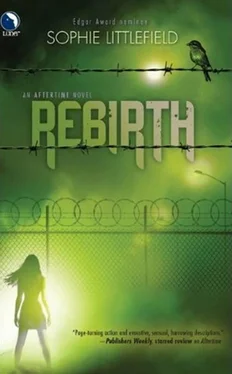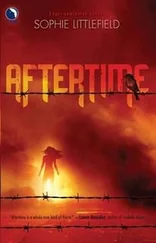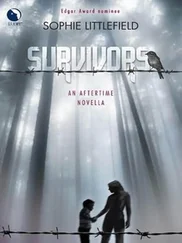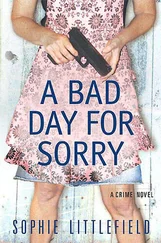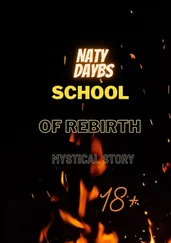Cass had been Dor’s observer as long and as attentively as anyone save Smoke. Their unspoken animosity was a thorn that always stung, whether she glimpsed him watching her, hands in pockets, as she tended her garden or whether he stopped by their tent in the evening after dinner and asked with exaggerated courtesy if he might borrow Smoke for a few minutes, minutes that inevitably turned into hours of discussion to which she was not privy. Cass told herself that she resented Dor for taking Smoke’s time away from her, but she knew that Smoke went willingly and that he needed the intense focus of his job. She just didn’t know why, and it was convenient and easy to blame Dor…but now that she was entering into her own bargain with the man, it was time for truth only, even-especially-with herself.
Dor was leaving the Box for Sammi. He would likely go elsewhere once he found her, because staying here under deteriorating conditions ran counter to continuing to survive, and survival was something of a religion to Dor, something he did with perhaps more conviction than anyone else Cass knew. When she came here with Smoke, nearly three months back, the Box was perhaps the safest place in all of the Sierras, maybe even all of California. But now was different. Maybe the North would be better, as the Beaters migrated South. Maybe somewhere rural was safer, a farmhouse or a barn set far from the road. Maybe, for all Cass knew, Dor was considering attempting to cross the Rockies, despite his talk.
But Dor wouldn’t tell his employees anything. If there were plans forming and breaking in his mind, he would keep them to himself as he sketched his possible futures and packed for the trip.
Cass would have liked to say goodbye to Faye, and maybe Coral Anne, but she didn’t trust herself not to break down. Friends: it was ironic that it was only now, when the world she’d known had suffered horror upon horror, only weeks from her thirty-first birthday, that she finally had any to call her own. Faye, with her acerbic wit and moments of surprising compassion. Coral Anne, whose generosity ran as deep as her Texas drawl. Only now did Cass realize how much she would miss them. If she got word that Smoke had returned-if by some miracle he managed to outlast his mission of vengeance-maybe she and Ruthie would come back here and resume their life, if the Box were still viable.
Cass paused in her packing for a moment and considered the possibility, giving herself a few seconds, a miserly ration of hope. She could return with Sammi and Dor, and Smoke would be ready to settle down for good, his thirst for blood finally sated. He would set about insulating their tent; she would make stews from the rutabaga and onions she grew in the garden, and rabbits and muskrats trapped and traded. They would play cards with Coral Anne and that couple who had arrived from Livermore, the ones who hung their tent with colorful flags they’d brought with them all this way. Maybe other families with children would come-and she would convince Dor to let them stay. Sammi would help watch Ruthie; she would teach her to play cat’s cradle and in the spring they would plant zinnias and coneflowers together.
When her seconds were past, Cass took the dream and crumpled it, tossed it from her mind like it was nothing, a senseless fancy. Her pack was prepared: a couple of changes for Ruthie, extra socks and underwear for her. A tube of lanolin and one of Neosporin, taken from the safe, among their dearest possessions.
Also in the safe was a letter Smoke had given her last month. It was written on fine stationery that bore the name Whittier P. Marsstin engraved in block letters. Smoke had carefully crossed off the name on each page-all three of them-and written in the careful script of someone mindful of economy, someone who chose each word with care. They were words of love and yet he never used the word love, promises made without ever using the word promise.
Cass had practically memorized the letter, but she left it in the safe and locked it before snuffing out her candle. As she got into the bed, shivering, and enclosed Ruthie’s warm body in the safety of her arms, she imagined the words of the letter already fading from her mind, and soon the sentences and paragraphs and finally Smoke’s entire meaning would be as lost to her as the man himself.
SAMMI RODE IN THE BACK OF THE TRUCK WITH the others, pretending to sleep, too afraid to speak. The men who rode back there with them-when did they sleep? Because every time Sammi opened her eyes, their eyes were there, too, dark and unreadable as they waited and watched while the rest of them huddled together for warmth.
Her mother was dead. Jed was dead. Everyone who resisted-even a little-dead, dead, dead. The only reason Sammi was alive was because her mother’s last words were Go with them, Sammi -her name was still on her lips when she’d gone down, blood pouring from the slice in her neck.
Jed had earned a bullet. He’d pretended to go along, helping his brothers support their parents as they were herded up into the truck, holding them up by their arms so they wouldn’t stumble. Stumbling got you killed-at least, that was what had happened to Mrs. Levenson, who didn’t have time to get her cane when the Rebuilders burst into the burning school. She tried to keep up but she kept twisting her hip and falling, making little “oof” sounds when she landed on the ground, and the third time one of the Rebuilders had hit her on the head with his black stick and she twitched and lay still, making no sound at all. Sammi had seen the Rebuilder-a woman, how could a woman do such a thing?-wind up for the swing, and Sammi had played softball, so she knew, from the way the woman brought the stick back and around and down with a crack everyone could hear, that the force must have crushed poor Mrs. Levenson’s skull.
And that was before they were even loaded on the truck.
There had been sixteen of them, in the end. Sixteen alive and thirty-four dead or dying in the burning school. Sammi was numb with horror as the truck ground out of the parking lot and onto Highway 161. Two of the Rebuilders, both men, both young, rode in the back with them. The one with his back to the cab and another who sat on a box, flipping a blade and catching it. It was the same blade he had used on Sammi’s mom and on the others, too, the ones who tried to keep the Rebuilders out of the common room.
An older man drove, and then there was the woman-the woman who had killed Mrs. Levenson. The guard who stared at her, the one with a tiny triangle of beard and a cap with a cartoon picture of a dog embroidered on it-he had made her sit near him and Sammi wondered with a sickening feeling if it was so he could look at her. Because he just kept looking at her. Jed and his family had been made to sit on the other side of the truck bed, and Jed mouthed words at her whenever the guy on the box wasn’t looking, he said I love you and other things Sammi could not understand, and after a while her vision blurred with tears and she couldn’t see his mouth forming words. In between were the rest of the survivors. Arthur. Mr. Jayaraman. Terry and her kids. The ones who were too old, too young, or too cowardly to fight or who, like Jed’s brothers, had someone to protect.
Her mother had died trying to protect Sammi. They hadn’t even wasted a bullet on her death; they’d dropped her to the ground like a sack of garbage and stepped around the pooling blood as though it was distasteful. Her mother’s body was left behind in the burning building; Sammi hoped it burned all the way, to the bones-and that the bones burned, too. She didn’t want the birds to get to her mother’s body; she’d seen what the birds could do, the big black ones that had showed up a week ago and feasted on the carcass of a fat raccoon the raiders had caught and left out in the courtyard for skinning. Better that her mother disappear from earth as Sammi wished she herself could disappear.
Читать дальше
Конец ознакомительного отрывка
Купить книгу
